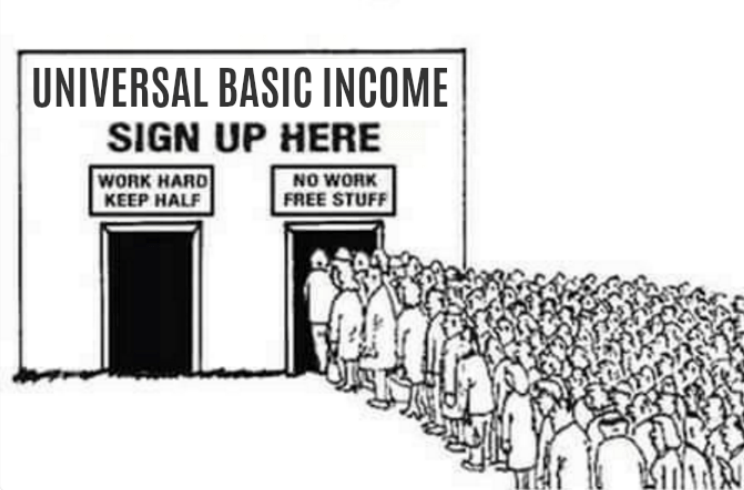
What is the Universal Basic Dividend (UBD) Plan?
Dr. Steve Trost suggests implementing a plan similar to Alaska’s Permanent Fund where a portion of revenues are given to citizens. In this system, private companies still control the resources, therefore one cannot call this idea socialist since the government does not take control of production. The plan will take up 16% of the United States’ GDP. $9000 will go to each citizen, $36000 for a family of four, and $46000 per elderly couple. There will be a 25% flat tax on everyone’s income that does not include their UBD.
Another aspect of the plan is that it eliminates a minimum wage requirement which may lead to low-paying jobs opening up for low-skilled workers. Dr. Trost suggests that we may see low-skilled jobs at $2/hr if people want to supplement their UBD income. I don’t think many people would take on a $2/hr job, quite honestly. Dr. Trost says that people will work the jobs if they have enough incentive to buy something like an iPhone. However, people aren’t particularly biting on restaurant jobs paying upwards of $10 per hour nowadays because of the turmoil of working in the food service industry. Speaking from personal experience in the food service industry, I didn’t particularly like working for $8.90 per hour for what I dealt with on a daily basis, and I can tell you that I would despise working $2 per hour for dealing with the same issues.
The Case Against an Over-Generous Welfare System
I personally believe in minimizing welfare as much as possible. Dr. Trost lists few arguments against welfare systems and one of them is that they create a social safety net which leads to a cycle of dependency.
If people rely on the government for income, what incentive would they have to get a job? You are stuck in the loop of relying on the government to live. What if one day, the government welfare system collapses and you find yourself with no work experience due to living off Uncle Sam’s generosity for many years? People wouldn’t want to hire someone who has no education, no work experience, and no drive for nothing but the bare minimum. I simply do not agree with handouts for those who consume and give nothing back. I understand that we will always have those who work hard but still financially struggle. Those people are the ones who truly deserve a welfare system so they can get themselves back on their feet.
Would an over-generous welfare system be fair to the people who worked hard on their education and careers to get a steady job? Not at all. I like Dr. Trost’s suggestion of $9000 per person because it gives people enough money for basic needs. But, it isn’t enough to live entirely comfortably, so it still incentivizes people to work for that financial comfort.